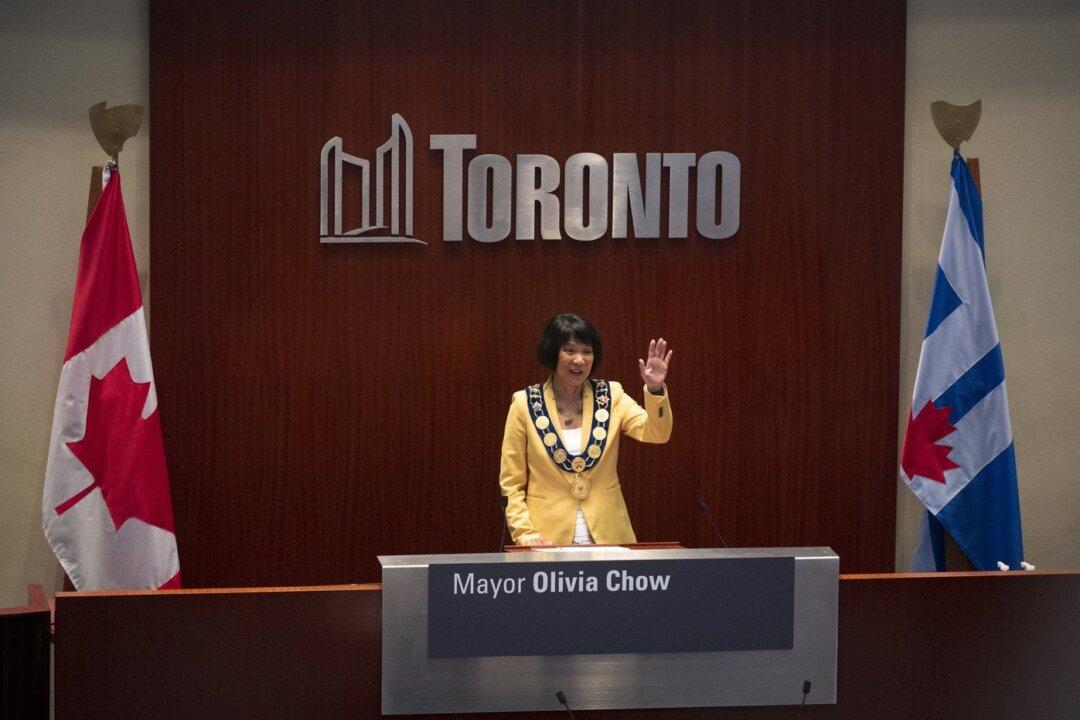Toronto Mayor Olivia Chow addressed concerns about the city’s safety Monday, emphasizing her belief that despite recent increases in crime rates, Toronto is not in a state of decline. Incidents like the death of a woman struck by a stray bullet on July 7 have amplified public worries about safety.
“I reject that whole notion that the city is in decline,” Ms. Chow said at a news conference on Sept. 18. She was responding to a reporter’s question about a full-page open letter taken out in the National Post where prominent Toronto businessman Thomas Caldwell criticized city hall for allowing Toronto to fall into decline, citing increasing violence and disorder. Mr. Caldwell stated that his staff “dread” riding on public transit.





